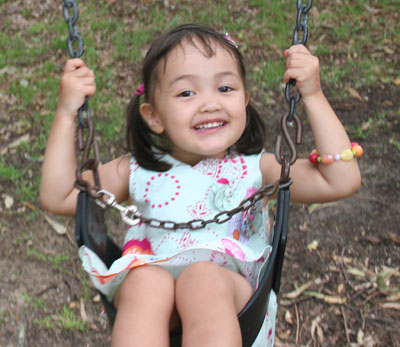It appears that the H-ASIA thread on "laowai" may be finally drawing to a close (I may be speaking too soon--Ryan may still be holding a few posts in his mailbox). As one of the editors of this list, and also as the person who inadvertently started this conversation by using the term in an unrelated discussion, I thought it might be a good idea to summarize the gist of the conversation we've had. Basically, the discussion has revolved around the meaning and usage of the term "laowai" in China today.
1) It seems that the overall consensus is that this term refers to people of European descent, although the term "Caucasian" is problematic. As suggested by one poster, Latin Americans (many of whom are of European descent as well) would probably be included in this category, although I would guess that those of noticeably African or Native American heritage might be perceived and labeled differently in China (one thing is for sure though: a "laowai" and a "gringo" are not the same thing!)
2) The second consensus is that this term is not meant to be insulting, nor is it generally used in pejorative fashion. While the context may differ, in most situations being labeled a "laowai" is probably not intended as an insult on the part of the labeler. If anything, it's become a knee-jerk reaction. One bit of evidence for this is that many Westerners in China have been calling themselves "laowai" for quite some time now.
3) However, from my reading of many of these messages, it is apparent that many of us "laowai" do in fact feel uncomfortable with the usage of this term in everyday life in China. Many of us feel that it demeans us as individuals, or as representatives of particular countries, and that it leads to over-generalizations about our behaviors and our habits. Not that we don't commit the same sorts of infelicities in our own societies towards our "Others", as many of us have already pointed out.
4) The overall message that I'm receiving here is that we all ought to be more aware of how this term is used, and to try our best to get people around us--at least those whom we feel we can influence--to modify or even cease their usage of the term.
Personally, I don't have a big problem with the use of the word "laowai". I suppose I'm so used to it that I've become numbed to its implications. However, I suppose I would feel more comfortable if people in China referred to me as a "xifangren" or "Westerner," that is, until they get to know me, and then they can just call me "Andrew." Even though the term "xifangren" is also problematic, it strikes me as somehow more accurate and less offensive on the whole than "laowai" or even "waiguoren".
Then again, in a country where the general reaction to a blond-haired blue-eyed Chinese speaker is "It talks!" I think this might take a while to happen.
I doubt that any of us "xifangren" have the power to persuade the Chinese masses to stop calling us "laowai"--not even the venerable Dashan who despite his bad rap among "laowai" has done more than anybody to humanize us as a group. However, I do believe that our Chinese colleagues do have the power to lead a revolution in Chinese thinking about categorizing and labeling non-Chinese, who are traveling to and living in China in greater and greater numbers. As for us "xifangren", we have the power and the duty to persuade others in our home countries and societies to be more wary about their categorizations of "dongfangren" (Easterners) or as I sometimes like to say in jest, "laoya" (Old Asians).
I'd like to end by quoting from Gene Cooper's last posting: "...there are no "racial" boundaries in nature. There is only a genetic continuum in which we are all situated in one place or another. The boundaries between the so-called "races" are cognitively imposed on that continuum based on visible characteristics (phenotypical appearance) and do not exist in nature." Amen. I don't think there's any better way to put it.
Finally I'd like to note that my daughter Sarah, whose mother is Chinese and whose father is a blond haired blue-eyed American, will be struggling with this identity issue all her life. Here in Aus, most people see her as "Asian," but in China, many people on the street see her and claim that she looks like a "laowai." Which is she really? And was Zhuangzi really a butterfly?
